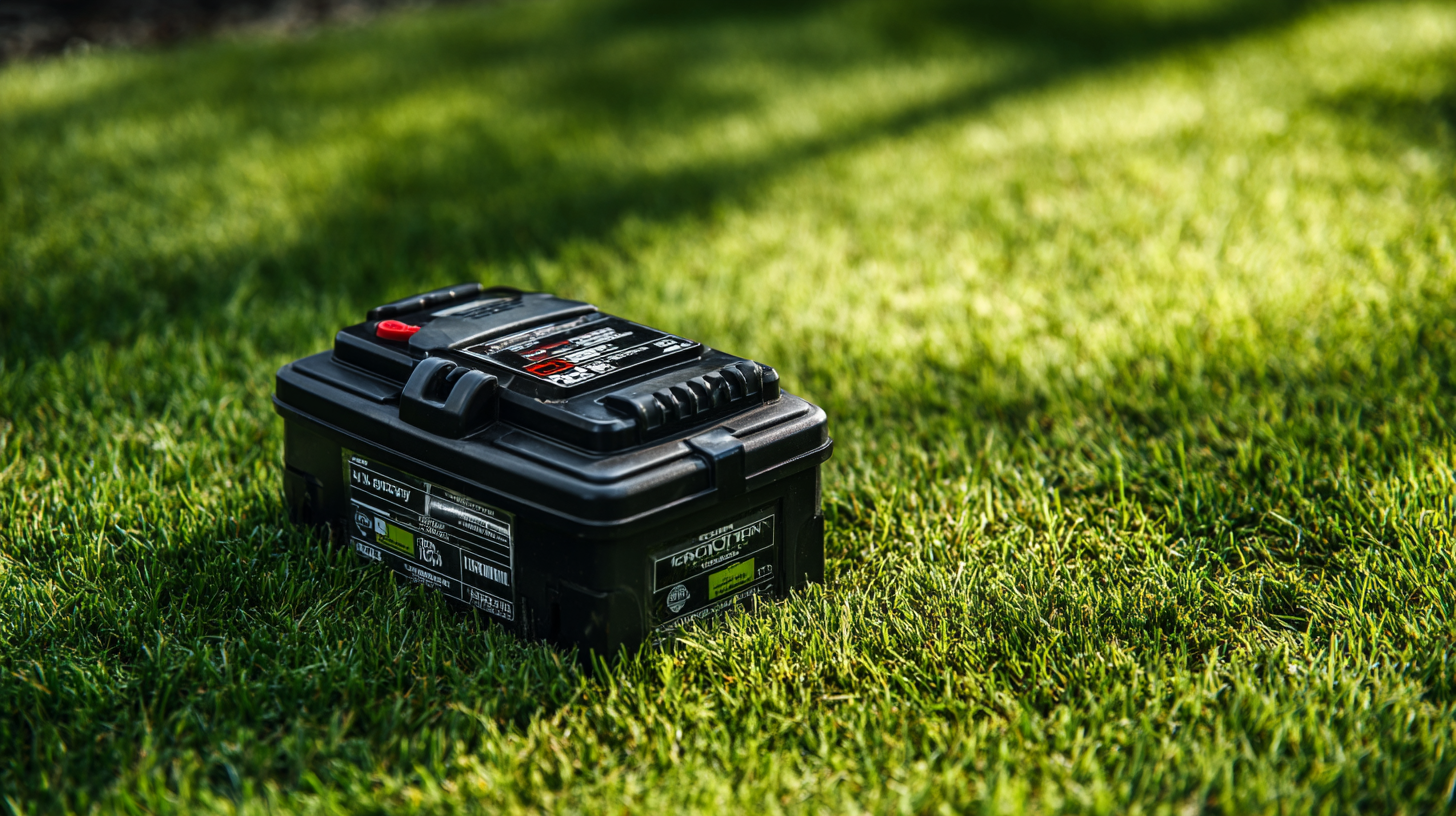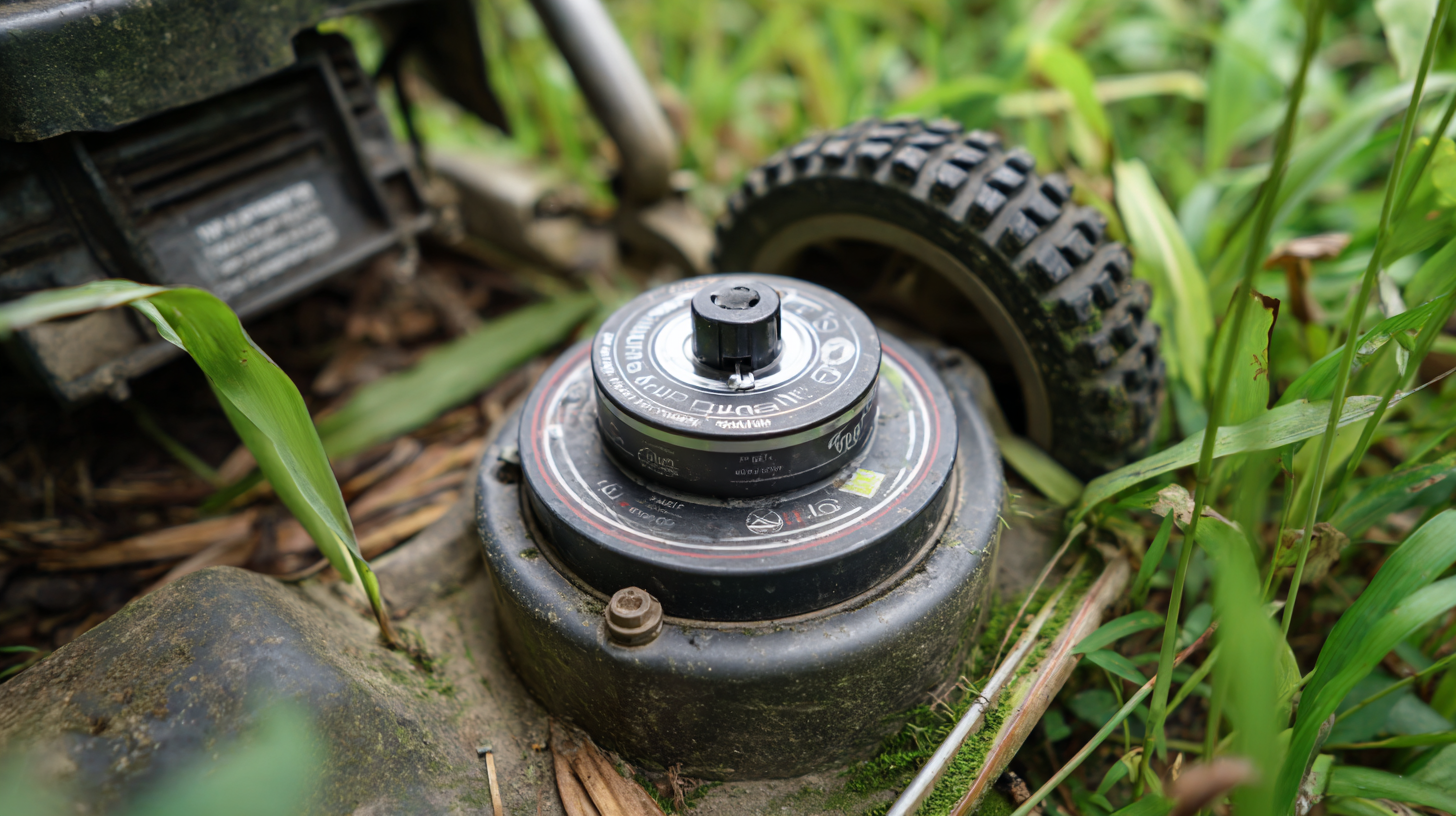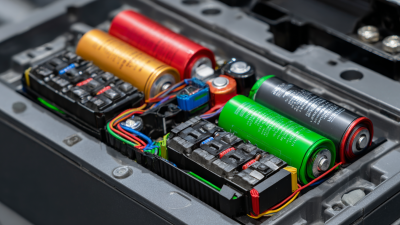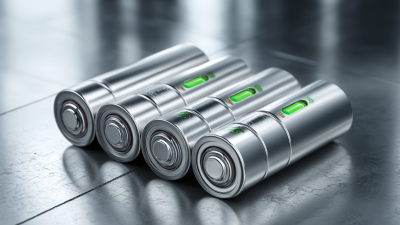In today's gardening world, having the right tools is essential for maintaining a beautiful and healthy lawn. One of the key components that often gets overlooked is the Lawn Mower Battery, which is critical for ensuring your mower operates efficiently and effectively. With a wide array of options available on the market, choosing the right battery can be a daunting task. Factors such as battery type, capacity, and compatibility with your mower play a significant role in the performance and longevity of your equipment.

This guide aims to simplify the selection process by providing you with comprehensive information on different types of lawn mower batteries, their specifications, and practical tips on how to determine the best fit for your specific garden needs. By understanding these elements, you can make an informed decision, ensuring that your lawn stays vibrant and well-maintained throughout the seasons.
When it comes to selecting the right battery for your lawn mower, several critical factors can greatly influence your decision. The first and foremost consideration is the battery type. Generally, lithium-ion batteries are gaining popularity due to their longer lifespan and lighter weight compared to traditional lead-acid batteries. According to the International Energy Agency, lithium-ion batteries can last up to 3,000 cycles, significantly outperforming lead-acid batteries, which typically last only 500 cycles.

Another essential factor to consider is the battery capacity, usually measured in amp-hours (Ah). A higher capacity means more power and longer runtime, allowing you to complete larger lawn areas without interruption. Reports from the American Lawn Mower Association indicate that a lawn mower with a 20Ah battery can operate for up to two hours, depending on usage conditions.
Tip: Always match the battery’s voltage with your mower’s requirements to ensure optimal performance. An incorrect match can damage both the battery and the mower.
Finally, consider the weight and dimensions of the battery, especially for electric mowers. A lighter battery allows for easier handling and operation, making your mowing experience more enjoyable.
Tip: Look for batteries with built-in Smart technology, which can help monitor performance and extend battery life.
When selecting the right lawn mower battery for your garden needs, avoiding common mistakes can significantly enhance your mowing experience. One frequent pitfall is underestimating the importance of battery compatibility. Always check the specifications of your lawn mower to ensure the battery you’re considering fits correctly and meets the voltage requirements.
Another mistake is prioritizing price over quality. While it might be tempting to opt for the cheapest option available, investing in a reliable battery can save you money in the long run. Higher-quality batteries tend to last longer and provide better performance, especially for cordless or electric mowers. Make sure to read product reviews and consider brand reputation when making your choice.
Tip: To extend the life of your lawn mower battery, store it in a cool, dry place during the off-season and regularly clean the terminals to prevent corrosion. Additionally, familiarize yourself with the battery's charging cycle to avoid overcharging or deep discharging, both of which can reduce battery longevity. By following these tips and being mindful of common mistakes, you can confidently select a lawn mower battery that meets your needs and ensures a lush lawn.
When it comes to maintaining a flourishing garden, selecting the right lawn mower battery is crucial for optimal performance. The three best types of lawn mower batteries are lead-acid, lithium-ion, and nickel-cadmium. According to a recent report from the International Battery Association, lithium-ion batteries have surged in popularity due to their high energy density and lightweight design, making them ideal for electric mowers. They typically offer longer runtimes—up to 3 times longer than lead-acid batteries—allowing for extended mowing sessions without frequent recharges.

Lead-acid batteries, on the other hand, remain a popular choice due to their cost-effectiveness and reliability. They are suitable for traditional gas-powered mowers, but they require more maintenance and have a shorter life span. Nickel-cadmium batteries, while now less common, provide excellent performance in extreme temperatures and are reliable in harsh conditions. However, they tend to have a lower energy capacity compared to their lithium-ion counterparts.
Tips: When choosing a battery for your lawn mower, consider your mowing needs. If you have a larger garden, investing in a lithium-ion battery can provide the longevity needed to complete the job without interruptions. Regularly check and maintain your battery to extend its lifespan; cleaning terminals and ensuring proper storage conditions can make a significant difference. Additionally, if you opt for lead-acid, remember they will require periodic charging to ensure optimal performance.
When selecting the right lawn mower battery, there are four essential features to consider that can significantly impact your gardening experience. First, look for battery capacity, measured in amp-hours (Ah). A higher capacity ensures longer run times, allowing you to mow larger areas of grass without the need for frequent recharges. This is especially important for expansive lawns or gardens that require more time and effort.
Second, consider the battery's voltage. Most lawn mowers operate at 24V or 36V, so ensuring compatibility with your mower is crucial. A higher voltage generally results in more power, enabling your mower to handle tough grass or uneven terrain effectively. Third, check the type of battery, as lithium-ion batteries tend to be lighter and more efficient than lead-acid options. They also have a longer lifespan and faster charging times, which can enhance your mowing experience. Lastly, evaluate the warranty and customer support offered by the manufacturer. A good warranty reflects the manufacturer's confidence in their product, ensuring peace of mind for your investment in lawn maintenance.
| Feature | Description | Importance Level | Example Specifications |
|---|---|---|---|
| Battery Type | Lead-acid, Lithium-ion, or Nickel-cadium | High | Lithium-ion recommended for efficiency |
| Capacity (Ah) | Measured in Ampere-hours, indicates energy storage | High | 5Ah to 12Ah for most mowers |
| Voltage (V) | Indicates power output of the battery | Medium | Typically between 12V and 36V |
| Charge Time | Time taken to fully charge the battery | Medium | 4 to 12 hours for complete charge |
Maintaining the health of your lawn mower battery is crucial for ensuring efficient performance and longevity. According to a report from the Outdoor Power Equipment Institute, nearly 30% of all mower-related failures stem from battery issues. By adopting proper maintenance techniques, users can extend their battery life significantly, often by 30% to 50%. Regularly checking the battery’s charge level can prevent unexpected power losses; ideally, batteries should be charged after every use.
Another key maintenance tip involves keeping the battery terminals clean and free from corrosion, which can inhibit performance. A study by the International Society of Arboriculture highlighted that regular cleaning can improve battery conductivity by up to 25%. Additionally, storing the mower and its battery in a cool, dry place can prevent temperature-related damage, as extreme heat can reduce battery lifespan by approximately 20%. By implementing these simple strategies, gardeners can ensure their lawn mower batteries remain reliable and efficient for years to come.








